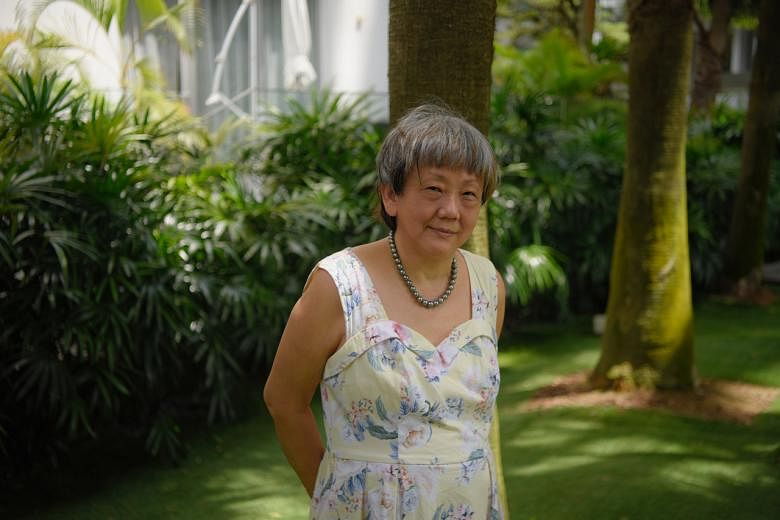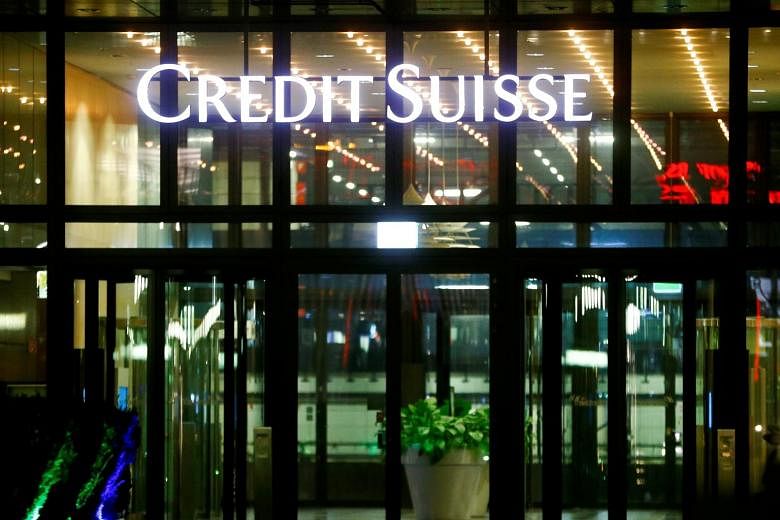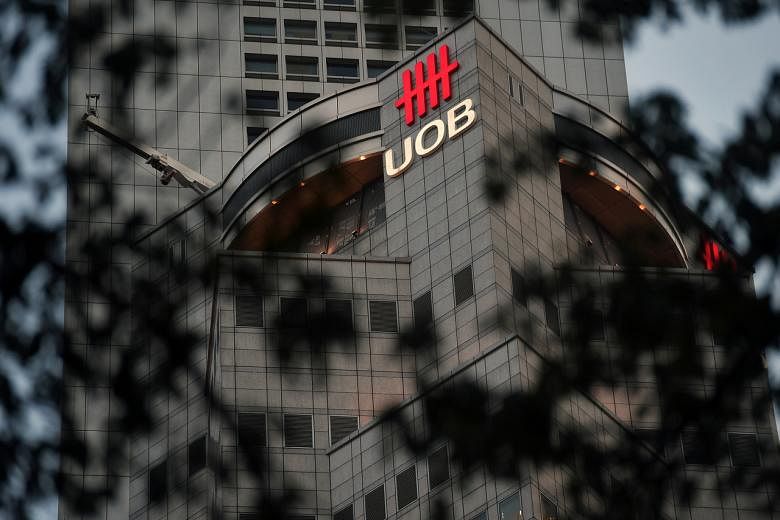- Joined
- Jul 25, 2008
- Messages
- 14,464
- Points
- 113
The bank cajoled and pressured Janet Tay into investing in accumulators, a.k.a. I-Kill-You-Later.

Madam Janet Tay said the bank's relationship manager had under-reported the amount of shortfall in her account, resulting in a delay in selling her shares to cover the gap. ST PHOTO: MARK CHEONG

Joyce Lim
Senior Correspondent
Feb 7, 2022
SINGAPORE - A 68-year-old retiree is suing Swiss bank Credit Suisse in Singapore for US$1.2 million (S$1.6 million) over trading losses when the share market tanked in 2020.
Madam Janet Tay said the bank's relationship manager had under-reported the amount of shortfall in her account, which resulted in a delay in selling her shares to cover the gap. By then, the price had fallen further.
She is also accusing the relationship manager of pushing her to invest in other products amid the volatility of the market. As a result, the investment greatly reduced the loan-to-value ratio to support her portfolio of US$4 million.
Had that not been the case, Madam Tay said in her statement of claim that she would have held on to some of her shares and "been able to sell them at optimum or favourable prices".
The lawsuit, which commenced last year (2021), centres on the role and duty of care expected of the bank's relationship manager.
Madam Tay said a reasonable and competent bank like Credit Suisse and its relationship manager owed her a duty of care in providing its services and carrying out its various duties and obligations in relation to her trading account.
Prior to her retirement, Madam Tay, who has a first-class honours in accountancy from University of Singapore and a master's in business administration with distinction from London Business School, used to run a management consultancy firm.
Madam Tay, who is represented by Mr Philip Ling and Ms Eunice Wong from Wong Tan & Molly Lim LLC, said in her statement of claim filed last August that she had known Ms Tania Chew, an employee of Credit Suisse's Singapore branch, since 2004.
Then, the latter was working at DBS Bank and was assigned as the relationship manager to handle her DBS Treasures account.
Madam Tay said she moved her investment portfolio to Credit Suisse on two occasions when approached by Ms Chew.
Subsequent to the opening of a trading account in 2018, Madam Tay had been giving instructions to Ms Chew to carry out various trades and transactions.
She said Ms Chew was well aware that she does not have or use any online banking services under the account, and Ms Chew had taken it upon herself and "assumed the duty and responsibility, to inform, advise and update" her on the status of her account.
Madam Tay said she relied on Ms Chew to inform her of any shortfall under the account and advise her on the actions to rectify it.
In her statement, Madam Tay said Ms Chew informed her of a US$200,000 shortfall on the morning of March 9, 2020. But it was only around 4.50pm that Ms Chew advised her to sell her Credit Suisse shares to reduce the inadequacy.
A shortfall refers to any financial obligation or liability that is greater than the cash on hand required to satisfy that obligation.
However, due to the falling US market, Madam Tay managed to sell only 8,000 shares, which lowered the shortfall by about US$28,000.
The following day (March 10), she was told that her shortfall stood at US$300,000, when it was in fact about US$673,000.
Due to the alleged misrepresentations by Ms Chew, Madam Tay said she was unable to clear the actual amount of shortfall and ended up selling her shares later when the market crashed further.
Prior to the incident, Madam Tay claimed that while she was on vacation in Australia around Feb 20, Ms Chew sent her messages on WhatsApp where she "repeatedly and persistently cajoled and pressured" her to purchase US dollar to Swiss franc FX accumulator products, which drastically reduced her loan-to-value ratio.
A loan-to-value ratio is a percentage measurement of the amount that can be borrowed against a share or a managed fund, using a margin loan.
As a result of the purchase on Feb 21, Madam Tay suffered losses amounting to US$634,275.
In court documents filed, she said the losses being claimed in the proceedings were sums she had earmarked for a charity which she started in 2010, in honour of her late mother Koh Seng Neo, to help underprivileged students from Raffles Institution who display academic potential.
Madam Tay added that she had placed great faith and trust in Ms Chew to advise and act in her best interests at all times, given that Ms Chew is the bank's relationship manager and their longstanding relationship of more than 16 years.
When contacted, Credit Suisse declined to comment as legal proceedings are ongoing.
In its defence filed, the bank denies any duty of care owed to Madam Tay.
Credit Suisse, which is represented by lawyers from Allen & Gledhill, said its relationship with her was governed by the terms of the contractual documents she had signed with the bank.
Credit Suisse said her account is a non-discretionary one, whereby it provided execution services and she was responsible for her own investment decisions.
Madam Tay was also responsible for managing and monitoring the portfolio and/or investments in her account.
No trial dates have been fixed yet.
Retiree sues Credit Suisse over $1.6 million in investment losses

Madam Janet Tay said the bank's relationship manager had under-reported the amount of shortfall in her account, resulting in a delay in selling her shares to cover the gap. ST PHOTO: MARK CHEONG

Joyce Lim
Senior Correspondent
Feb 7, 2022
SINGAPORE - A 68-year-old retiree is suing Swiss bank Credit Suisse in Singapore for US$1.2 million (S$1.6 million) over trading losses when the share market tanked in 2020.
Madam Janet Tay said the bank's relationship manager had under-reported the amount of shortfall in her account, which resulted in a delay in selling her shares to cover the gap. By then, the price had fallen further.
She is also accusing the relationship manager of pushing her to invest in other products amid the volatility of the market. As a result, the investment greatly reduced the loan-to-value ratio to support her portfolio of US$4 million.
Had that not been the case, Madam Tay said in her statement of claim that she would have held on to some of her shares and "been able to sell them at optimum or favourable prices".
The lawsuit, which commenced last year (2021), centres on the role and duty of care expected of the bank's relationship manager.
Madam Tay said a reasonable and competent bank like Credit Suisse and its relationship manager owed her a duty of care in providing its services and carrying out its various duties and obligations in relation to her trading account.
Prior to her retirement, Madam Tay, who has a first-class honours in accountancy from University of Singapore and a master's in business administration with distinction from London Business School, used to run a management consultancy firm.
Madam Tay, who is represented by Mr Philip Ling and Ms Eunice Wong from Wong Tan & Molly Lim LLC, said in her statement of claim filed last August that she had known Ms Tania Chew, an employee of Credit Suisse's Singapore branch, since 2004.
Then, the latter was working at DBS Bank and was assigned as the relationship manager to handle her DBS Treasures account.
Madam Tay said she moved her investment portfolio to Credit Suisse on two occasions when approached by Ms Chew.
Subsequent to the opening of a trading account in 2018, Madam Tay had been giving instructions to Ms Chew to carry out various trades and transactions.
She said Ms Chew was well aware that she does not have or use any online banking services under the account, and Ms Chew had taken it upon herself and "assumed the duty and responsibility, to inform, advise and update" her on the status of her account.
Madam Tay said she relied on Ms Chew to inform her of any shortfall under the account and advise her on the actions to rectify it.
In her statement, Madam Tay said Ms Chew informed her of a US$200,000 shortfall on the morning of March 9, 2020. But it was only around 4.50pm that Ms Chew advised her to sell her Credit Suisse shares to reduce the inadequacy.
A shortfall refers to any financial obligation or liability that is greater than the cash on hand required to satisfy that obligation.
However, due to the falling US market, Madam Tay managed to sell only 8,000 shares, which lowered the shortfall by about US$28,000.
The following day (March 10), she was told that her shortfall stood at US$300,000, when it was in fact about US$673,000.
Due to the alleged misrepresentations by Ms Chew, Madam Tay said she was unable to clear the actual amount of shortfall and ended up selling her shares later when the market crashed further.
Prior to the incident, Madam Tay claimed that while she was on vacation in Australia around Feb 20, Ms Chew sent her messages on WhatsApp where she "repeatedly and persistently cajoled and pressured" her to purchase US dollar to Swiss franc FX accumulator products, which drastically reduced her loan-to-value ratio.
A loan-to-value ratio is a percentage measurement of the amount that can be borrowed against a share or a managed fund, using a margin loan.
As a result of the purchase on Feb 21, Madam Tay suffered losses amounting to US$634,275.
In court documents filed, she said the losses being claimed in the proceedings were sums she had earmarked for a charity which she started in 2010, in honour of her late mother Koh Seng Neo, to help underprivileged students from Raffles Institution who display academic potential.
Madam Tay added that she had placed great faith and trust in Ms Chew to advise and act in her best interests at all times, given that Ms Chew is the bank's relationship manager and their longstanding relationship of more than 16 years.
When contacted, Credit Suisse declined to comment as legal proceedings are ongoing.
In its defence filed, the bank denies any duty of care owed to Madam Tay.
Credit Suisse, which is represented by lawyers from Allen & Gledhill, said its relationship with her was governed by the terms of the contractual documents she had signed with the bank.
Credit Suisse said her account is a non-discretionary one, whereby it provided execution services and she was responsible for her own investment decisions.
Madam Tay was also responsible for managing and monitoring the portfolio and/or investments in her account.
No trial dates have been fixed yet.
Last edited:







